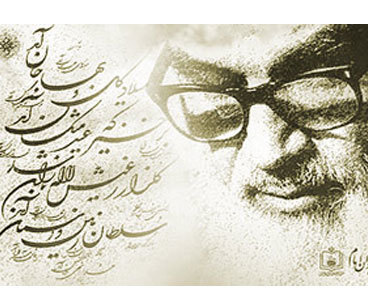- News code: 1261969
- Source: imam-khomeini.ir
The Wine of Love
I am a hunter of taverns, don't ask me about the Beloved.
I am dumb, so from the dumb, and distracted don't ask for an oration.
I'm preoccupied with my own blindness and wretchedness,
So from the blind don't ask for sight and vision.
Your languid eyes have brought on my own languor,
So don't ask from one so smitten for aught but delirious ravings.
Don't consort with a wandering dervish, but if ever you do,
Never ask him about wisdom, philosophy, scripture, or of the sayings of the Prophet.
I am drunk with the wine of Thy love, so from such a drunkard
Don't ask for the sober counsel of a man of the world.
Dey 1365 AHS
[December-January 1986/87]
In this poem, as in the previous poem, Imam Khomeini may be playing with different facets of his own personality. He was famous for his speeches, yet in this poem he protests that he is not to be asked for an oration.
He is a philosopher and theologian, yet he cautions that one should not turn to him for philosophical insight.
He is a cleric who has written a famous commentary on forty sayings of the Prophet, a partial translation of which has been published as Forty Hadiths: An Exposition of Ethical and Mystical Traditions.
All of this is superceded by his inner life as a mystic lover. The language used to express this is that of Hafiz.
The tavern, kharabat, may also be brothel or gaming house. In the tradition of Hafiz, it is the place of mystical ecstacy, where the 'wine,' the love of God, is served. The Beloved, yar, or friend/companion, is commonly taken to indicate God.
The languid eye, cheshm-e bimar, literally sick eye, is used for the seductive languid eye of a mistress, and this genre of poetry is understood to mean the spiritual attraction of the divine. The 'sick eye' of the intoxicated beloved is half-closed, disdainful.
The wandering dervish mentioned in the poem is a Qalandar, an itinerant dervish with a reputation for being something of a rogue. Hikmat, literally wisdom, has the technical meaning of a kind of philosophical theology or theosophy.

